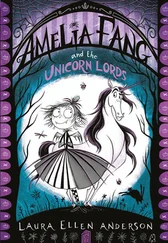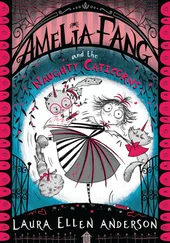Laura Schlitz - Splendors and Glooms
Здесь есть возможность читать онлайн «Laura Schlitz - Splendors and Glooms» весь текст электронной книги совершенно бесплатно (целиком полную версию без сокращений). В некоторых случаях можно слушать аудио, скачать через торрент в формате fb2 и присутствует краткое содержание. Год выпуска: 2012, ISBN: 2012, Издательство: Candlewick Press, Жанр: Старинная литература, на английском языке. Описание произведения, (предисловие) а так же отзывы посетителей доступны на портале библиотеки ЛибКат.
- Название:Splendors and Glooms
- Автор:
- Издательство:Candlewick Press
- Жанр:
- Год:2012
- ISBN:978-0-7636-6246-2
- Рейтинг книги:5 / 5. Голосов: 1
-
Избранное:Добавить в избранное
- Отзывы:
-
Ваша оценка:
- 100
- 1
- 2
- 3
- 4
- 5
Splendors and Glooms: краткое содержание, описание и аннотация
Предлагаем к чтению аннотацию, описание, краткое содержание или предисловие (зависит от того, что написал сам автор книги «Splendors and Glooms»). Если вы не нашли необходимую информацию о книге — напишите в комментариях, мы постараемся отыскать её.
Splendors and Glooms — читать онлайн бесплатно полную книгу (весь текст) целиком
Ниже представлен текст книги, разбитый по страницам. Система сохранения места последней прочитанной страницы, позволяет с удобством читать онлайн бесплатно книгу «Splendors and Glooms», без необходимости каждый раз заново искать на чём Вы остановились. Поставьте закладку, и сможете в любой момент перейти на страницу, на которой закончили чтение.
Интервал:
Закладка:
One of the children seized her hands. Cassandra bit her. Then she wept, because the child had beautiful hands, petal soft and clean and strong. Her half circle of ragged teeth marks was an obscenity. But she could not apologize. The children’s faces blurred and went dim, and she was asleep again, weeping still.
When she woke up, the dark-haired girl was standing on a chair beside her bed. The child was using her teeth to loosen the knot in the silk cord. When the knot gave way, the girl pulled the brass monkey over the kinks in the cord.
“What if she misses it?” asked the red-haired girl. “She’s used to having it to open and shut the bed curtains.”
“She won’t miss it,” the other girl said firmly. “It’s giving her nightmares. Anyway, she’ll still have the rope.” She handed the brass statue to the boy. “Take it out of the room, Parse.”
The boy weighed the object in his hands. “It’s int’resting,” he said. “Might be worth two, three shillings.”
“It’s horrid. Take it out,” commanded the dark-haired girl. The boy wrinkled his nose at her, but he took the monkey out of the room. He came back empty-handed.
Cassandra gave a great sigh of relief. She rolled over so that she could pet the red dog. Stroking it, she fell back to sleep.
When Cassandra awakened, one nostril had cleared, and she could breathe through her nose. The inside of her mouth was as dry as wool. Her neck hurt; she had scratched it raw. Dizzily she lifted her head.
The candles had burned out, but the room was not dark, only dim. It was dawn outside, and the children were asleep. Cassandra looked from one to the other, recalling their names. The boy sleeping before the fire was Parsefall. The dark-haired girl in the armchair was Clara. The girl sleeping at the foot of her bed was Lizzie Rose, and the red spaniel belonged to her, not to Marguerite.
Cassandra shifted. The dog stirred and yawned. Lizzie Rose awoke and pushed herself up on one elbow. “Are you more comfortable, ma’am?”
Cassandra consulted the child’s worried face. “Yes.”
Lizzie Rose stretched toward her, laying one hand on Cassandra’s brow. “We’ll send for the doctor today. He’ll make you feel better.”
Cassandra took the girl’s hand, examining it for teeth marks. “I thought I bit you.”
“That was Clara.”
“I can leave you Strachan’s Ghyll, you know.”
Lizzie Rose looked embarrassed. “You needn’t if you don’t want to.”
Cassandra frowned. “If someone offers you something you want, you should take it.” She swallowed, running her tongue over her lips. “I want a glass of wine. Will you get it?”
Lizzie Rose slid off the bed. She tiptoed barefoot across the room. Cassandra watched her with an aching heart. Dear God, but the girl was young: to be able to move so easily, after being up all night! Cassandra accepted the wine, gulping it so that it spilled down her front.
Lizzie Rose took the glass and refilled it with water from the washstand. She moistened a handkerchief and mopped the sticky patch on Cassandra’s chin. Cassandra spoke impatiently: “For God’s sake, child! What good have I ever done you that you should serve me thus?”
Lizzie Rose’s forehead knotted. Cassandra could see her trying in vain to remember one good deed.
“There isn’t anything,” Cassandra said testily. “Mind you, I’ll leave you the house — you and the boy — that’ll be worth something. But first I want to tell you — I must tell someone — what I stole from Marguerite.”
Lizzie Rose sat cross-legged on the bed. “It was the stone, wasn’t it? The fire opal.”
“Yes,” Cassandra said. “It was the stone.”
“It happened more than seventy years ago. It was Marguerite’s birthday, and mine; I was thirteen and she was twelve. It was Carnival time in Venice, and Marguerite’s father persuaded the nuns to have a birthday party at the convent. Marguerite was allowed to invite her six dearest friends. We were all dearest friends — Marguerite was very given to endearments — but I was her dearest, dearest friend. Fool that she was, she loved me best.
“It was my birthday, too. I beg you to remember that. Marguerite gave me an ivory fan painted with peasants or nymphs or some such dainty nonsense. It was the only gift I had that day. Before my mother ran away, I always had birthday presents, but my mother didn’t know where I was. I knew there was no chance of a letter from her. I was afraid that my father would forget me, too, so I wrote to remind him of the date. Every day I waited. I even prayed. He sent nothing: no letter, no gift.
“The sixth of November came, the day of Marguerite’s party. Monsieur Tremblay came, and we received him in the nuns’ parlor. There were little cakes and confetti and chocolate to drink. We sat and watched Marguerite open her birthday presents.
“She was giddy with excitement and cooed over her gifts in a way that tried my affection sorely. Her doting papa brought her a large and costly doll — she was still fond of dolls — an Indian shawl, and a leopard-skin muff, which grieved her a little, because, she said, she pitied the poor leopard! I am sure that no leopard ever felt more pitiless than I did at that moment. I wanted to claw her eyes out.
“But I pinned a smile to my face; I gushed and simpered with the rest. Marguerite’s last and best gift was a rosewood box full of pearls. Her father told her that now that she was twelve, she was old enough to have her mother’s jewels. She squeaked with joy and began to adorn herself.
“We all envied her; it wasn’t only me. There were so many pearls. Cream colored and silvery, bracelets and earrings and rings . . . Marguerite loved pearls. I didn’t. I thought they were insipid. But these were so soft looking, so translucent, that they seemed to have no edge. Marguerite passed the jewels around so that we could all try them on. The other girls made peacocks of themselves, trying to see their reflections in the windows — there was no mirror in the nuns’ parlor. But I had my eye on the rosewood box. It was not quite empty. There was a small pasteboard carton left inside. I asked Marguerite what it held, and she told me to open it and see. That was the beginning of my doom, though of course I didn’t know it.
“I opened the box and saw the fire opal. It had a different setting in those days; it was a simple pendant. The colors so dazzled me that I gasped, and the other girls flocked around me, asking me to let them see. I felt as if the necklace were mine. All of us were astonished by its beauty; none of us had ever seen anything like it. But Marguerite showed no desire to try it on.
“We passed the jewel from hand to hand. I fancied that it smarted and stung my palm — a feverish tingle that I found first painful and then agreeable. I tried not to let anyone see how much I longed for it to be mine.
“That night I could not sleep. The image of the fire opal so teased me that I slipped out of bed and crept on tiptoe to Marguerite’s cubicle. Leaving our beds at night was strictly forbidden, but the dormitory partitions were only curtains, made of rough cloth. There were no locks to pick, no doors to rattle, and in fact Marguerite and I often crept into each other’s beds after dark. So I went to her cubicle and asked in a whisper if she were awake.
“She lifted her blanket so that I could slide into bed with her. She said she had been unable to sleep, thinking of me. She asked me if I hated her for having so many presents when I had only her ivory fan. I lied, of course. I said I loved her dearly. She believed me. Then I asked her about the stone.
“She said she had a horror of it. She knew it was foolish of her, but the jewel was a fire opal, and her mamma had died by fire. Madame Tremblay had been oddly superstitious about the gem, even obsessed with it. She used to call it her wishing stone.
Читать дальшеИнтервал:
Закладка:
Похожие книги на «Splendors and Glooms»
Представляем Вашему вниманию похожие книги на «Splendors and Glooms» списком для выбора. Мы отобрали схожую по названию и смыслу литературу в надежде предоставить читателям больше вариантов отыскать новые, интересные, ещё непрочитанные произведения.
Обсуждение, отзывы о книге «Splendors and Glooms» и просто собственные мнения читателей. Оставьте ваши комментарии, напишите, что Вы думаете о произведении, его смысле или главных героях. Укажите что конкретно понравилось, а что нет, и почему Вы так считаете.










